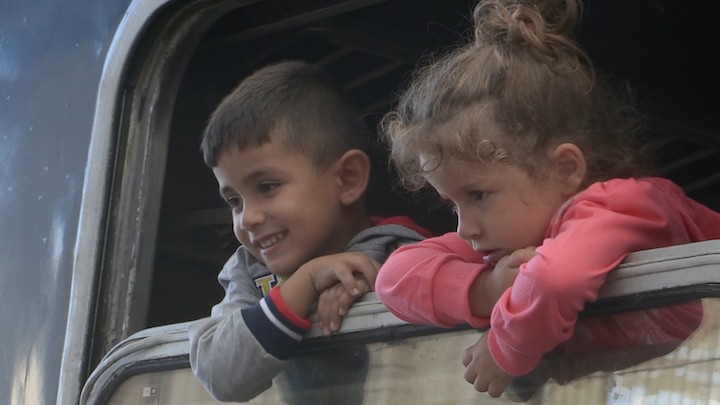Getty Images
Belgian Prime Minister Charles Michel offered to resign Tuesday night — the latest political casualty of the fallout from Europe’s migration crisis.Michel has attempted to operate a minority government since his biggest coalition partner quit earlier this month, saying it could not endorse a United Nations agreement on migration.The prime minister had tried to gain support from Belgium’s left-wing opposition parties to bolster his government, but they tabled a motion of no-confidence Tuesday, prompting Michel to offer his resignation to Belgium’s King Philippe.“My call did not convince,” said the 42-year-old leader. “It was not heard. I have decided to resign and go to the King immediately.”King Philippe had not yet decided whether to accept his resignation, the royal palace said Tuesday night.The crisis began when the nationalist New Flemish Alliance (N-VA) quit the coalition government earlier this month, saying it could not accept the government’s planned support for a major U.N. agreement on migration, formally known as the Global Compact for Safe, Orderly and Regular Migration.The historic deal, a non-binding agreement intended to coordinate an international response to the migration crisis, was signed by the leaders of 164 countries in Marrakech last week.Michel, who had parliamentary backing to sign the deal despite losing his major coalition partner, said that endorsing the pact placed his government “on the right side of history,” but lamented that the agreement was being politicized in Europe “to spread lies and mistruth.”Since the defection of the N-VA, Michel had been trying to persuade left-wing opposition parties to back him as part of a “coalition of goodwill” in order to continue running the government until scheduled parliamentary elections in May.But the Socialist and Green parties instead tabled a no-confidence motion in his government, saying it was incapable of taking decisions. Rather than waiting for the vote to be held, Michel offered his resignation.That depends on how King Philippe responds to his resignation offer. The palace said Tuesday he would hold off on a decision until he had consulted with advisers and political leaders.With elections scheduled for May, one option is that a caretaker administration continues until then. If not, a snap election could be held as early as next month.Michel had rejected calls for the early elections on Tuesday, saying they would create “stagnation for the whole of 2019.”The U.N. agreement has created tensions in Europe, fueling street clashes between protesters and police. More than 5,000 anti-migration protesters took to the streets of Brussels Sunday, and small but vocal factions of the “yellow vests” movement in France have also been stridently opposed to the pact.The accord, which is expected to be ratified at the U.N. headquarters in New York Wednesday, sets out 23 objectives for better global coordination to manage international migration flows accounting for 250 million people, or 3 percent of the world’s population.The United States rejected the pact a year ago, and since then a raft of right-wing, anti-migrant governments have also pulled out, including Hungary, Italy, Austria, Poland, Bulgaria, and Slovakia, who feared it would lead to increased immigration to Europe. The European Commission and other international bodies insist that is not the case.In Belgium, the N-VA refused to endorse the pact, arguing it would undermine the government’s tough stance against illegal migration.The issue of immigration has fueled political turmoil across Europe since the start of the migration crisis in 2015. It has led to the rise of right-wing populists, fueled anxieties that drove Britain out the EU, widened the fault line between the Brussels establishment and anti-migration nationalist governments, and created bitter divides within governing coalitions, in Germany and now Belgium. Cover image: Prime Minister of Belgium Charles Michel arrives at 12th ASEM Asia-Europe Meeting on October 19, 2018 in Brussels, Belgium. (Pier Marco Tacca/Getty Images)
Cover image: Prime Minister of Belgium Charles Michel arrives at 12th ASEM Asia-Europe Meeting on October 19, 2018 in Brussels, Belgium. (Pier Marco Tacca/Getty Images)
Advertisement
What happened?
Advertisement
What happens next?
Why the disagreement over the U.N. migration pact?
